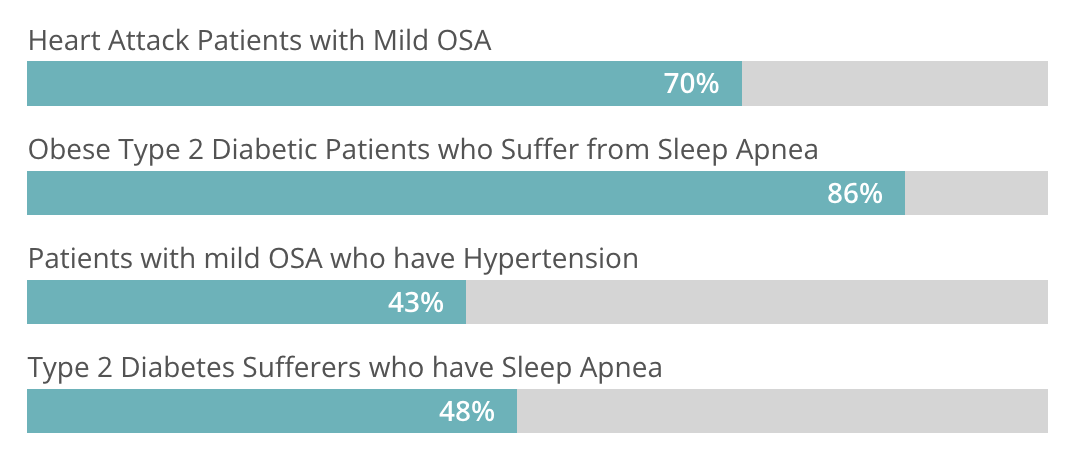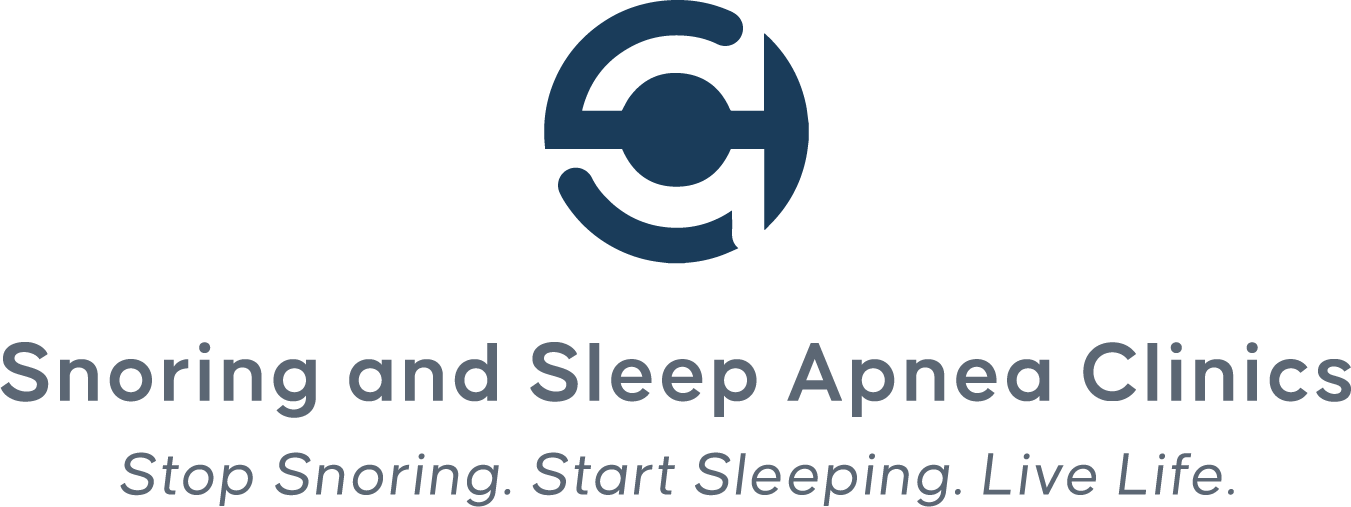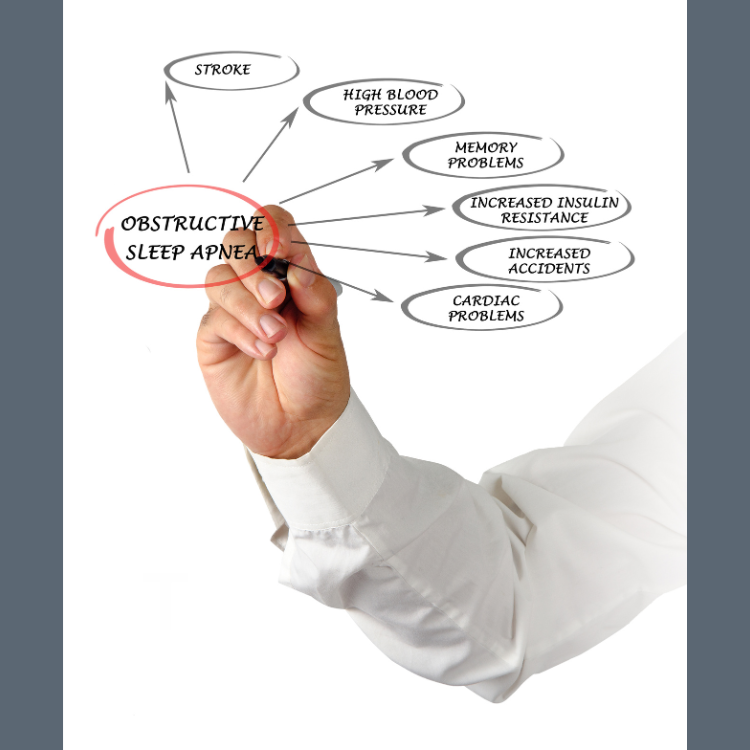Recognize the Symptoms of Sleep Apnea
Sleep apnea is a serious condition that can significantly impact your health. Learn to identify the symptoms of sleep apnea early to seek appropriate treatment and improve your quality of life. Our treatment and process is simple, easy to use, no-invasive, and effective.
Key Symptoms to Watch For
Identifying Sleep Apnea Symptoms
- Snoring that disrupts your sleep (or your partner’s)
- Gasping, choking, or coughing while asleep
- Pauses in breathing that you may not even notice
- High blood pressure that won’t go away
- A pounding or irregular heartbeat
- Unexplained weight gain or difficulty losing weight
- Waking up with a headache or dry mouth
- Feeling groggy, sluggish, or drained
- Struggling to focus or remember things
- Feeling down, depressed, or disconnected
- No longer enjoying hobbies or time with family/friends
Effects of Obstructive Sleep Apnea (OSA)
If you or a loved one snores, it’s easy to brush it off as just an annoyance. But what if that sound is actually your body crying out for help? Snoring can be a red flag for a serious Sleep Breathing Disorder (SBD), a condition that affects over 42 million Americans. The most common form, Obstructive Sleep Apnea (OSA), occurs when your airway becomes blocked—your tongue and soft tissues collapsing and cutting off your oxygen supply. Left untreated, this can lead to dangerous health risks, including high blood pressure, heart disease, and chronic fatigue. Don’t ignore the signs. If snoring is disrupting your sleep or your partner’s, it’s time to take action.

Dangers of Ignoring Sleep Apnea
Sleep apnea is not just about poor sleep; it has serious health implications. The condition increases the risk of high blood pressure, which can lead to heart disease. Interrupted breathing during sleep stresses the cardiovascular system, heightening the risk of heart attacks and strokes. Additionally, sleep apnea is linked to a higher likelihood of developing type 2 diabetes due to disrupted sleep affecting insulin sensitivity.
Each symptom of sleep apnea contributes to these risks. Excessive daytime sleepiness can lead to accidents and decreased cognitive function. Loud snoring often indicates obstructed airways, which can exacerbate cardiovascular problems. Gasping for air during sleep is a clear sign of oxygen deprivation, which can have immediate and long-term health consequences. Addressing these symptoms promptly can mitigate these dangers and improve overall health.
The Impact of Not Treating Sleep Apnea
Discover how addressing sleep apnea with insurance coverage can transform your health and well-being.
%
of heart attack Patients have Mild OSA
%
of patients with Mild OSA have Hypertension
%
of obese type 2 Diabetic patients suffer from Sleep Apnea
%
of type 2 Diabetes sufferers have Sleep Apnea
more at risk for stroke
car accidents annually
1. Young et al. New Engl J Med 1993 2. Young et al. J Am Med Assoc 2004 3. Marshall et al. Sleep 2008 4. US Department of Health and Human Services, Centers for Disease Control and Prevention 2008 5. Young et al. Sleep 2008 6. Kuniyoshi et al. J Am Coll Cardiol 2008 7. O’Keeffe & Patterson. Obes Surg 2004 8. National Highway Traffic Safety Administration 9. http:// sleepdisordersguide.com/sleepapnea/sleep-apnea-statistics.html 10. National Commission on Sleep Disorders Research 11. Sleep Disordered Breathing and Mortality: Eighteen-Year Follow-up of the Wisconsin Sleep Cohort; Department of Population Health Sciences. Department of Medicine, University of Wisconsin-Madison, Madison, WI. Sleep. 2008 Aug 1; 31(8): 1071–1078 12. Sjostrom et al. Thorax 2002
Take the First Step Towards Better Sleep
Don’t let snoring or sleep apnea disrupt your life any longer. At SASA Clinics (Snoring and Sleep Apnea Clinics), we offer effective CPAP alternatives tailored to your needs. Click below to schedule a consultation and start your journey to better rest and better sleep.

